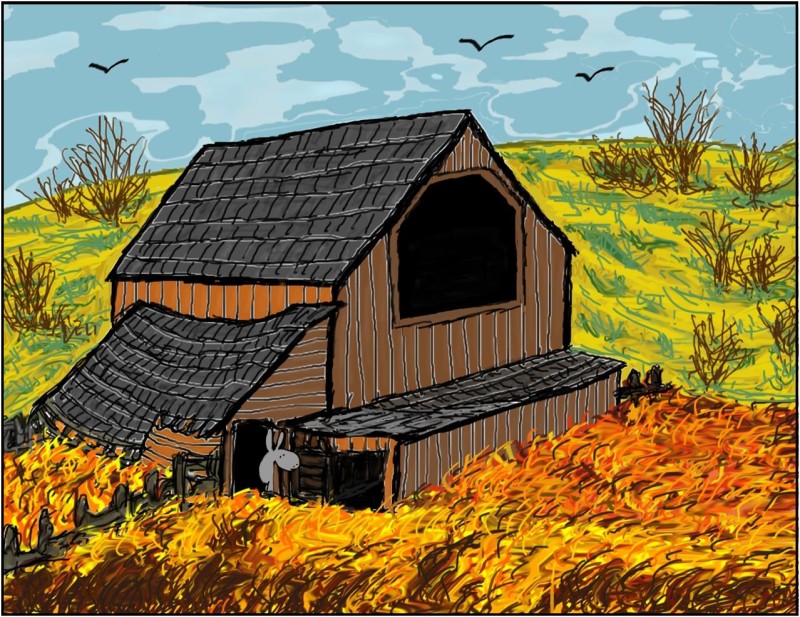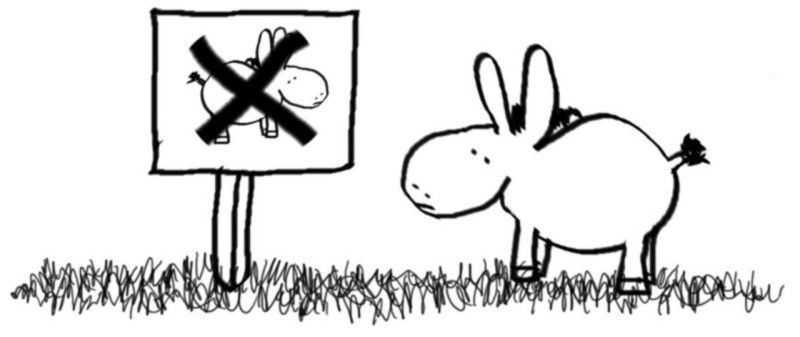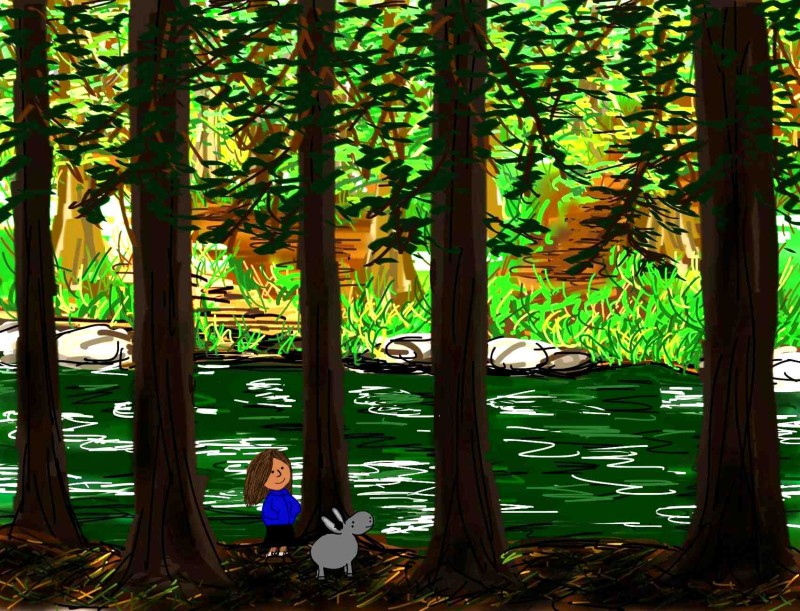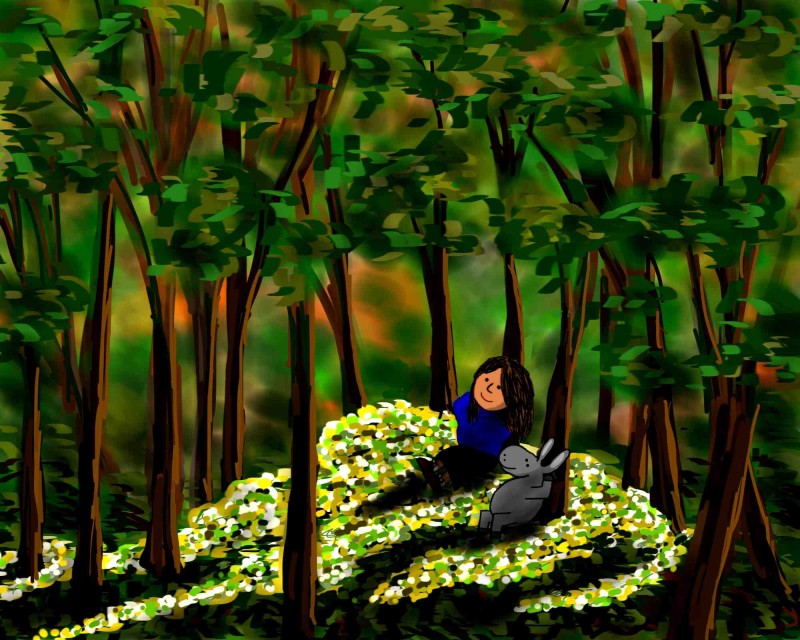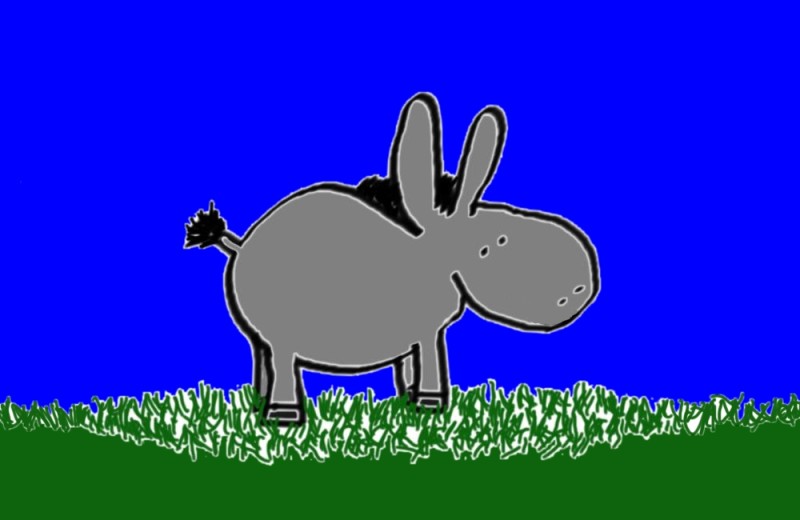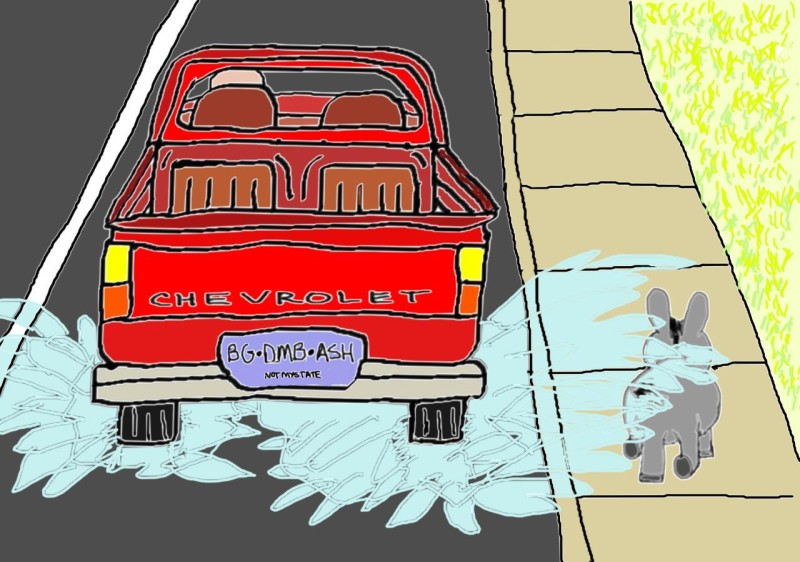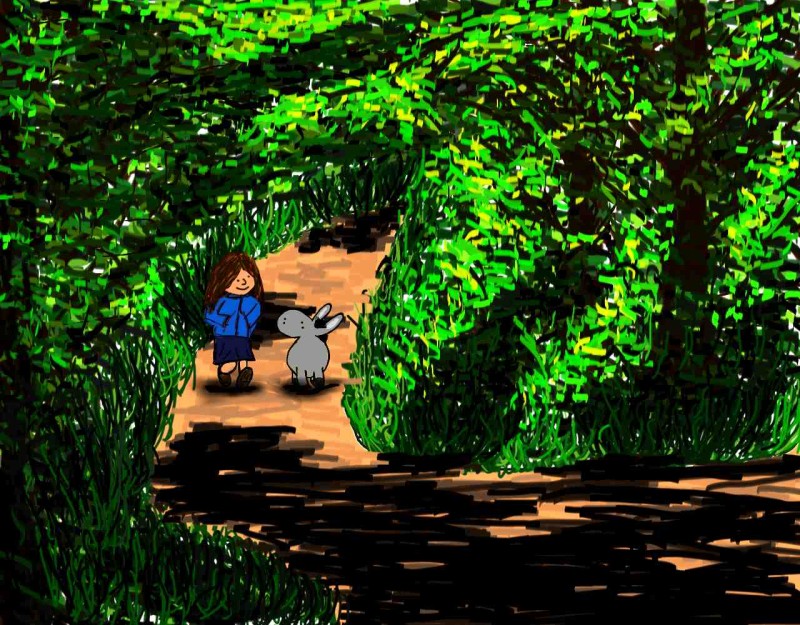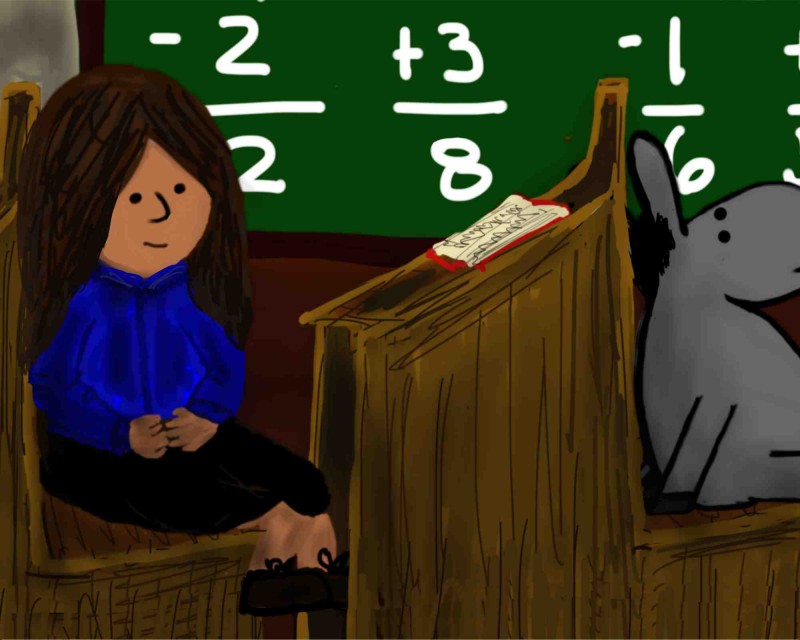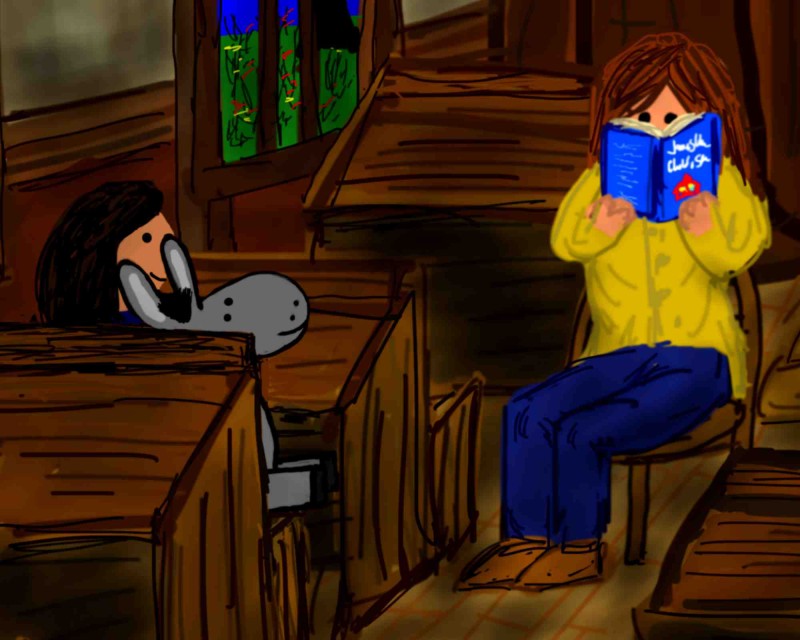What a nice barn… I wonder where the animals are? And the people? It’s hard to believe they have abandoned this barn. I guess they’ve all rushed off to the future.
“Blurtso acts like an ass”
“Ditto and Virginia look at the trees”
“Ditto is lost in the sound”
“Blurtso looks at the grass” (II)
If a single blade of grass exists only as a part of the pattern called grass, and the pattern called grass exists only as a part of the pattern called the world, and the pattern called the world exists only as a part of the pattern called the universe, then everything that exists exists only as pattern, and it is impossible to speak of grass, or pumpkin pies, or “Blurtso”, without speaking of the universe.
“Blurtso thinks about grass” (I)
“Blurtso gets honked off the road”
“Ditto goes to school” (XXVIII)
Do you think we’re dumb? said Virginia. Dumb? said Ditto. Yes, said Virginia, because we’re in the class for failures. But you failed on purpose, said Ditto. Yes, said Virginia, but maybe I’m too dumb to find the regular class interesting. I’m not dumb, said Ditto, and I don’t find the regular class interesting. Then why did you fail the Benchmark? My mother, said Ditto, says I failed because donkeys have a different way of understanding. A different way? said Virginia. Yes, said Ditto, we’re donkeycentric. Donkeycentric? said Virginia. Yes, said Ditto, we understand things based on our experience as donkeys.
Is Ms. Johnson donkeycentric? said Virginia. Partly, said Ditto, she’s multicentric. Multicentric? said Virginia. Yes, said Ditto, she understands things from multiple perspectives. How can she do that? said Virginia. She’s not bound by any limits, said Ditto, and her center is everywhere.
“Ditto goes to school” (XXVII)
I’m going to say two words, said the schoolmarm, tell me which begins with “eh.” Listen carefully: egg, pan. Which word begins with “eh”? Egg begins with “eh.” Now, I’m going to say two more words. Tell me which begins with “h”… I wonder, thought Virginia, what Ditto is thinking? It looks like he’s paying attention. I never realized how boring this class was until I got put in intervention. We never say what we think. We just repeat. I wonder if the schoolmarm likes what she does? I guess grown-ups don’t get bored as easy as kids.
“Ditto goes to school” (XXVI)
Shall we read page three of The Children’s Story? said Ms. Johnson. Oh yes, said Virginia, I want to know why the teacher and children are afraid. Very well, said Ms. Johnson, page three says:
The children rustled, watching the teacher, wondering what possessed her… Johnny looked away from the door and watched with the other children. He did not understand anything except that the teacher was afraid, and because she was afraid she was making them all worse and he wanted to shout that there was no need to fear. “Just because they’ve conquered us there’s no need for panic-fear,” Dad had said. “Don’t be afraid, Johnny. If you fear too much, you’ll be dead even though you’re alive.”
We still don’t know why they’re afraid, said Virginia. No, we don’t, said Ms. Johnson. I don’t like to be afraid, said Virginia. Neither do I, said Ditto. Maybe that’s why Johnny has so much hate, said Virginia. Why? said Ms. Johnson. Because he doesn’t like to be afraid, and he’s angry at the person who’s making him afraid. Are we sure it’s a person? said Ms. Johnson. It says “they” conquered, said Virginia.
Who are they? said Ms. Johnson. I don’t know, said Virginia, but they must be bad if they conquered. Is conquering bad? said Ms. Johnson. That depends if you’re a conquer or a conquered, said Virginia. A “conqueror,” said Ms. Johnson. “They” could be another kind of animal, said Ditto. Like what? said Ms. Johnson. Any kind of animal that’s different from them, said Ditto, like a herd of rhinoceri. “Rhinoceroses,” said Ms. Johnson. Or a swarm of bees, said Ditto, or a school of piranhas. What’s a piranha? said Virginia. A piranha, said Ms. Johnson, is a freshwater fish with an insatiable appetite for meat. Insatiable? said Virginia. Impossible to satisfy, said Ms. Johnson. Oh, said Virginia.
Why don’t you like to be afraid? said Ms. Johnson. Because, said Virginia, I don’t know what’s going to happen. But something good might happen, said Ms. Johnson. But it might not, said Virginia. We fear the unknown, said Ditto, like Hamlet. Hamlet? said Ms. Johnson. Yes, said Ditto, my parents and their friend Blurtso staged a play called “Hamlet” last year. What does Hamlet say? said Ms. Johnson. He says, said Ditto, that he would rather stay with something familiar that doesn’t make him happy than take his chances with something unfamiliar. Something unfamiliar? said Ms. Johnson. Yes, said Ditto. Like what? said Ms. Johnson. Like death, said Ditto. Are you afraid of death? said Ms. Johnson. Yes, said Ditto. And you, Virginia? Yes, said Virginia.
Do you think Johnny is afraid of death in the story? said Ms. Johnson. Yes, said Ditto, or something worse. What’s worse than death? said Ms. Johnson. No one can say, said Ditto, until they know what death is. So it might not be bad? said Ms. Johnson. It might not, said Ditto, but we don’t know, so we create nightmares to fill the unknown. Is that what Johnny’s dad is telling us, said Ms. Johnson, when he says, “If you fear too much, you’ll be dead even though you’re alive”? Yes, said Ditto.
Have you ever heard of Franklin Delano Roosevelt? said Ms. Johnson. No, said Ditto. He was a president of the United States who said, “We have nothing to fear but fear itself.” What does that mean? said Virginia. It means, said Ditto, that the worst thing to do is be afraid. Why? said Virginia. Because when you’re afraid, said Ditto, you’ll do anything to stop being afraid. Do you think it’s easy, said Ms. Johnson, to frighten people into doing what you want them to do? Yes, said Ditto, all you have to do is convince them something unknown will happen if they don’t.
